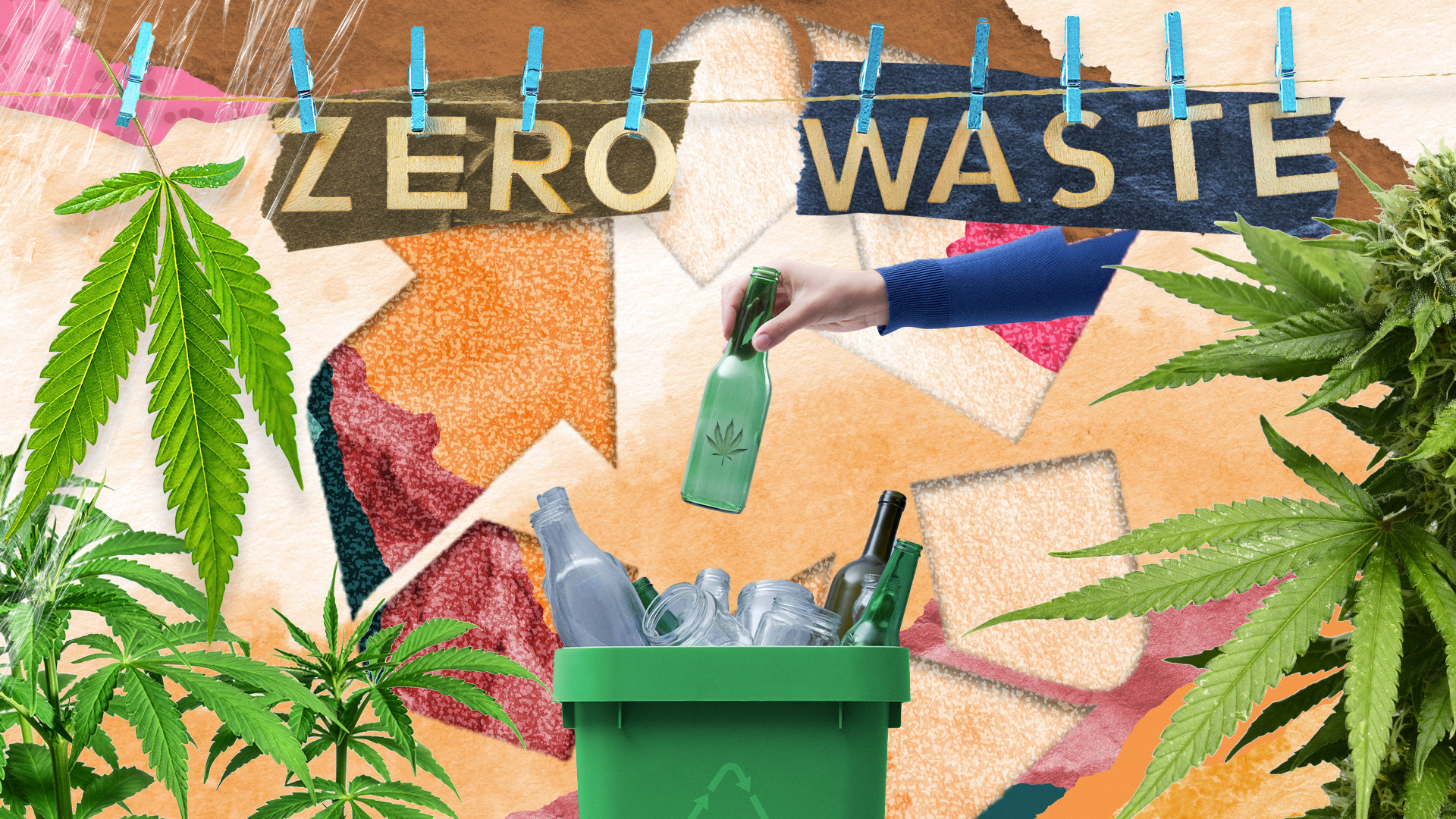As the cannabis industry blooms across the globe, so too does its impact on the environment. Simply put, this industry has grown exponentially, with research estimates showing the United States is projected to generate revenue to the tune of nearly $43 billion in 2024. Furthermore, sales are set to hit $102 billion by 2026 From the water and land used to grow for cultivation to the waste it leaves behind, this green business isn’t always as “green” as you might think.
But here’s a thought: what if we could turn the tables on waste? Imagine recycling the leftovers from cannabis production—like the stems, leaves, and other bits that aren’t sold.
Could this practice help us make the industry more sustainable, reducing its environmental footprint? This is the question we’re diving into: Can cannabis waste be recycled, and if so, how could this move us closer to a more sustainable world?
Understanding Cannabis Waste
Cannabis waste consists of all non-hazardous materials and by-products resulting from the production of cannabis. Should the waste include hazardous elements—such as chemicals, radioactive substances, or biologically dangerous compounds—it requires special disposal methods.
In general, cannabis waste includes, but is not restricted to:
- Growing Supplies: This category covers soil, hydroponic sponges, and other cultivation tools.
- Surplus Plant Parts: Includes the removed and unused sections of the plant, like roots, as well as any other plant material that isn’t used, all categorized as organic waste.
- Outdated or Unused Cannabis Items: This includes CBD products and may range from liquids and tinctures to oils, extracts, and other items infused with cannabis.
- Cannabis-Related Accessories: Items such as vape pens, grinders, jars, capsules, or any packaging that has been in contact with or used for storing or processing cannabis.
Before these materials can be classified as waste, manufacturers must make them unusable. It’s the businesses’ responsibility to figure out how to destroy cannabis products and their packaging effectively. For instance, a glass container used for CBD products could be shattered to ensure neither its contents nor its label can be identified.
The purpose of such stringent disposal guidelines is to prevent any chance of unauthorized reuse or resale. Imagine if a cannabis farm disposed of its excess hemp and cannabis openly. This could lead to theft, with the stolen materials possibly being resold or used illegally, fueling secondary and illicit markets.
Why You Should Get Your Medical Marijuana Card
Veriheal has satisfied millions of patients nationwide by giving them access to these benefits
- Larger purchase limits
- Peace of mind
- Enhanced legal protection
- Access to higher potency strains
- Save up to 25% on cannabis purchases
- Skip the line at the dispensary
The Potential for Recycling Cannabis Waste
Recycling and repurposing cannabis waste not only addresses environmental concerns but also opens avenues for innovation and sustainability in various industries. Below are key methods through which cannabis waste can be effectively reused:
- Composting for Soil Enrichment: Transforming cannabis waste into compost enriches the soil, providing valuable nutrients for future agricultural and gardening projects.
- Conversion into Biofuels or Energy: Cannabis waste can be processed into biofuels, offering a renewable energy source that reduces reliance on fossil fuels.
- Repurposing for Construction Materials (e.g., Hempcrete): The fibrous parts of cannabis waste can be repurposed to create hempcrete, a sustainable and lightweight construction material ideal for insulation and structural projects.
- Innovative Uses in Other Industries (Textiles, Paper Production): The fibers from cannabis waste can be repurposed into durable textiles for clothing or eco-friendly paper, reducing the demand for virgin materials and minimizing the environmental footprint.
These methods not only address the waste management challenges posed by the growing cannabis industry but also contribute to a circular economy, leveraging waste as a resource for new products and industries.
Future Outlook
Looking ahead, the future of recycling cannabis waste seems bright, but it’s going to take some work. Scientists and companies are always looking for better ways to recycle and use cannabis leftovers. As technology gets better, so does our ability to turn waste into something amazing.
But technology is just one piece of the puzzle.
Changes in laws and rules play a huge role, too. If the government makes it easier to recycle cannabis waste by updating the laws, more companies might jump on board. Plus, the cannabis industry itself can help by setting high standards for recycling. Imagine if all cannabis companies decided to recycle their waste—it could lead to big changes in how we take care of our planet.
The Bottom Line: Embracing Sustainability Through Cannabis Waste Recycling
The growing cannabis industry presents a unique opportunity to promote environmental sustainability by recycling waste. Transforming leftover cannabis into compost, biofuels, construction materials, and textiles not only reduces our ecological footprint but also opens up new avenues for innovation. However, achieving this requires a unified effort from businesses, policymakers, and communities to navigate the challenges ahead.
As we look to the future, the potential for cannabis waste recycling is immense. By viewing waste as a valuable resource, we can drive the industry forward on a more eco-friendly and responsible path. Let’s commit to turning cannabis waste into a catalyst for environmental change, paving the way for a greener, more sustainable world.
Note: The content on this page is for informational purposes only and is not intended to be professional medical advice. Do not attempt to self-diagnose or prescribe treatment based on the information provided. Always consult a physician before making any decision on the treatment of a medical condition.
Author, Share & Comments
















